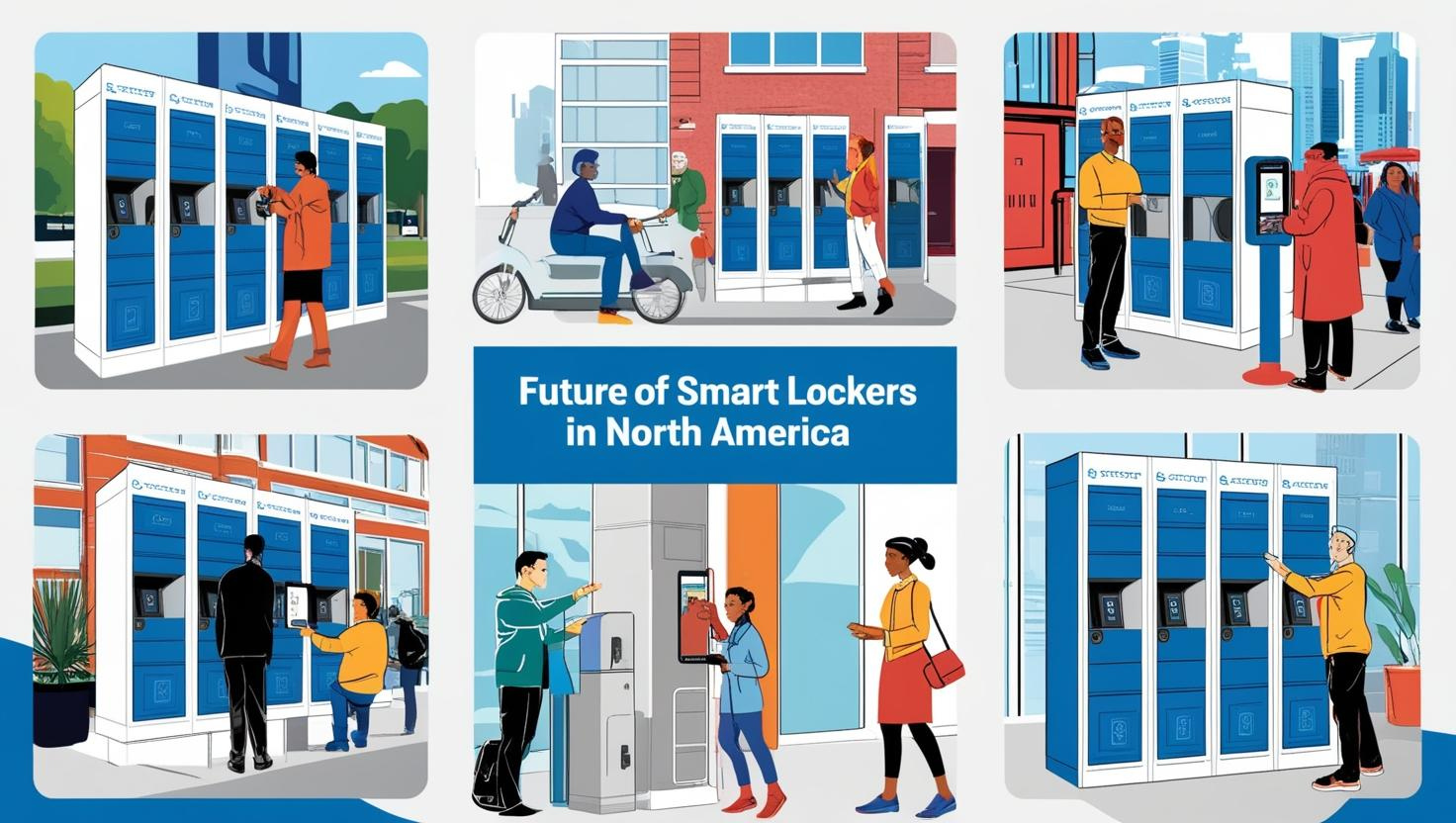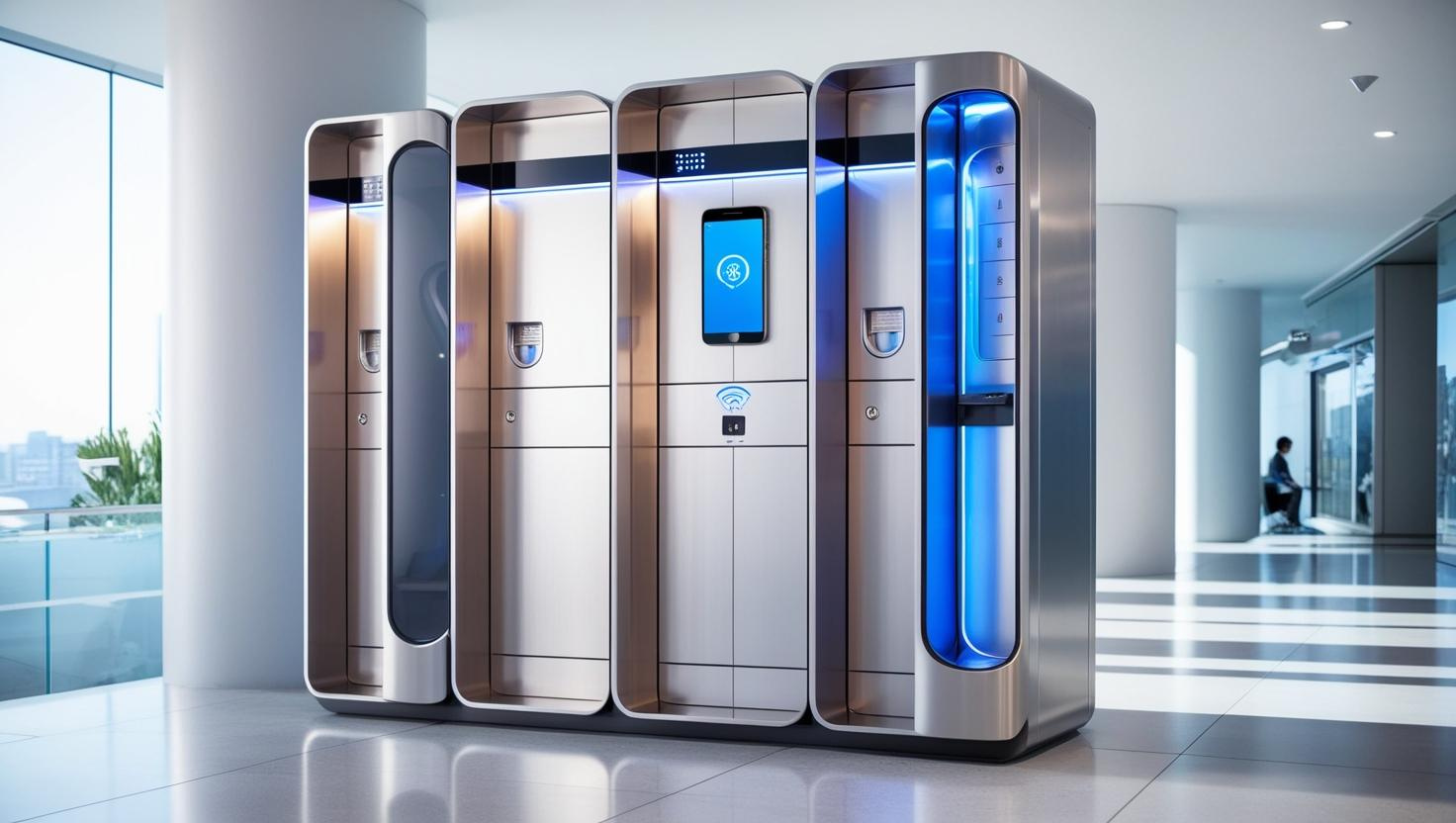Exploring the Growth of Smart Locker Market: A New Era in Secure Storage Solutions
The smart locker market in North America is witnessing rapid growth as technological advancements and shifting consumer preferences drive demand for secure, efficient, and contactless parcel storage solutions. With the rise of e-commerce, urbanization, and evolving workplace dynamics, smart lockers are becoming a crucial component in last-mile delivery, retail, and corporate sectors. As businesses and consumers seek more convenient and secure storage options, the future of the smart locker market looks promising with continuous innovations shaping the industry.
Growing Adoption of Smart Lockers in E-Commerce and Retail
The e-commerce boom has significantly influenced the demand for smart lockers across North America. As online shopping continues to rise, retailers and logistics providers are investing in smart lockers to streamline package deliveries and reduce last-mile delivery challenges. Consumers are seeking secure and convenient options to receive their parcels without the risk of theft or missed deliveries. Smart lockers address these concerns by offering 24/7 access and automated pickup, eliminating the need for direct interactions with delivery personnel.
Retailers are also incorporating smart lockers within their stores to enhance the customer experience. Buy Online, Pick Up In-Store (BOPIS) services have gained popularity, enabling shoppers to collect their purchases from designated smart lockers without waiting in line. This trend is expected to drive further adoption of smart lockers as businesses look for innovative ways to meet customer expectations.
Download PDF Brochure for Info @ https://www.marketsandmarkets.com/pdfdownloadNew.asp?id=209948292

Workplace and Residential Integration of Smart Lockers
As hybrid work models and flexible office spaces become more prevalent, workplaces are integrating smart lockers to facilitate seamless package deliveries for employees. Companies are leveraging smart locker systems to ensure secure and efficient distribution of office supplies, personal deliveries, and interoffice correspondence. The ability to track and manage packages remotely enhances operational efficiency and reduces administrative burdens.
Similarly, residential complexes and multi-family housing units are incorporating smart lockers to address package management issues. With the surge in online orders, property managers are investing in smart locker solutions to provide residents with secure, contactless delivery options. Smart lockers eliminate the need for front desk personnel to handle packages manually, offering a streamlined and user-friendly alternative for apartment communities.
Technological Advancements Driving Innovation
The future of the smart locker market in North America is heavily influenced by technological advancements. The integration of Internet of Things (IoT), artificial intelligence (AI), and cloud-based management systems is enhancing the functionality and security of smart lockers. IoT-enabled smart lockers allow real-time tracking and remote access control, enabling users to receive notifications and manage their deliveries effortlessly. AI-driven analytics further optimize locker usage by predicting demand patterns and automating allocation processes.
Biometric authentication and contactless access technologies are also reshaping the industry. Many smart lockers now support fingerprint scanning, facial recognition, and mobile app authentication, ensuring enhanced security and user convenience. As technology evolves, smart lockers are expected to become even more sophisticated, incorporating advanced security features and seamless integration with digital ecosystems.
Sustainability and Environmental Impact
Sustainability is a key factor driving the adoption of smart lockers in North America. The reduction of failed delivery attempts and inefficient last-mile logistics contributes to lower carbon emissions and decreased transportation costs. By centralizing deliveries in secure locations, smart lockers minimize unnecessary travel and optimize delivery routes, promoting eco-friendly logistics operations.
Furthermore, businesses are investing in energy-efficient smart lockers equipped with solar-powered units and smart sensors to reduce energy consumption. The focus on sustainable solutions aligns with corporate environmental goals and government initiatives promoting green logistics and smart city infrastructure.

Challenges and Market Restraints
Despite the promising growth prospects, the smart locker market faces certain challenges that could impact its expansion. High initial installation costs and ongoing maintenance expenses may deter small businesses and residential complexes from adopting smart locker systems. Additionally, concerns regarding data security and privacy remain a key consideration, as smart lockers rely on digital platforms to manage and store sensitive information.
Another challenge is the need for standardization and interoperability among different smart locker providers. With various manufacturers offering diverse solutions, ensuring compatibility and seamless integration with existing delivery systems and software platforms can be complex. Addressing these challenges will be crucial for sustained market growth and widespread adoption.
Future Outlook and Growth Opportunities
The smart locker market in North America is poised for continued expansion as demand for secure, automated storage solutions rises across multiple industries. The increasing focus on contactless delivery, urban logistics, and workplace automation will further drive adoption in the coming years. As technological advancements continue to enhance the capabilities of smart lockers, businesses and consumers will benefit from improved efficiency, security, and convenience.
Government initiatives promoting smart city infrastructure and sustainable urban development are also expected to support market growth. Collaboration between technology providers, logistics companies, and retailers will be essential in addressing existing challenges and unlocking new opportunities for innovation.
80% of the Forbes Global 2000 B2B companies rely on MarketsandMarkets to identify growth opportunities in emerging technologies and use cases that will have a positive revenue impact.
- Food Packaging Market Size Set for Strong Growth Through 2030 Amid Rising Demand for Convenience Foods
- Fertilizers Industry Set to Grow at 4.1% CAGR Through 2030
- Leading Automated Guided Vehicle Companies 2024: An In-depth Analysis
- CHARGED UP: SHIFT TO E-MOBILITY AND THE EVOLUTION OF TRANSPORTATION
- Global Automotive Market: Predictions For 2024



